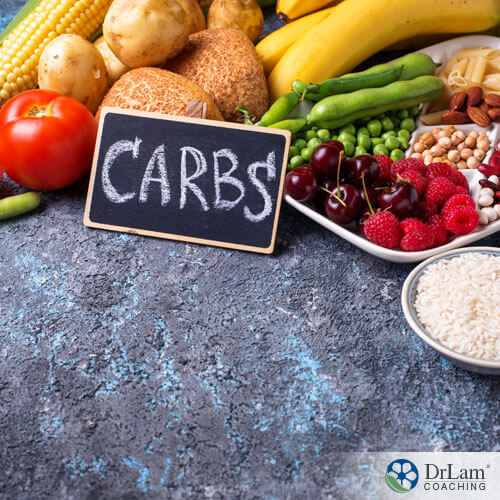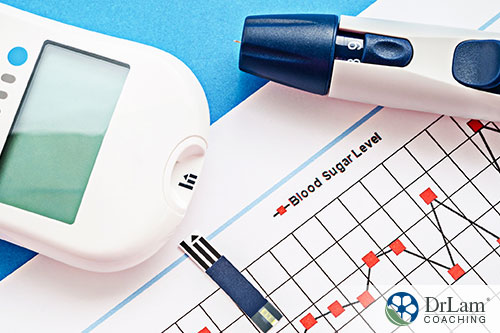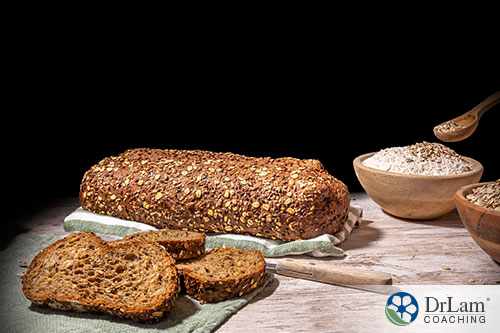
Not all carbohydrates are created equal. Some have more nutrients than others, some spike your blood sugar sooner than others, and some have hidden side effects. And choosing the right carbs can be a critical consideration if you are trying to lose weight, eat a healthy diet, or have health issues like diabetes or adrenal fatigue. Understanding and comparing carbohydrates can be essential for making the right choices for your body.
This is why you need a diet that maintains a constant level of sugar in your blood. To achieve this, you need to eat various low-glycemic index foods that are known to slowly release sugar into your body during and in-between meals. Any carbohydrates that are quickly converted into glucose should be avoided including pasta, bread, soda drinks, and many more.
 Carbohydrates are one of the three macronutrients along with protein and fat. When we talk about carbohydrates, we often refer to sugars, fibers, and starches found in everyday food such as grains, vegetables, fruits, dairy, candies, and different sweets. Comparing carbohydrates will provide us with the practical information we need on how to structure our diet.
Carbohydrates are one of the three macronutrients along with protein and fat. When we talk about carbohydrates, we often refer to sugars, fibers, and starches found in everyday food such as grains, vegetables, fruits, dairy, candies, and different sweets. Comparing carbohydrates will provide us with the practical information we need on how to structure our diet.
Carbs are the body’s main source of energy and are essential for proper functioning. Through digestion, carbs are converted into blood glucose for the body to use for fast-acting energy, and the excess is conveniently stored in the liver and muscles as glycogen, providing energy for the body when the glucose levels are down.
For a healthy diet, you need to be familiar with the different types of carbohydrates. When comparing carbohydrates, it is important to note that there are nutritional pros and cons for each one of them.
These types of carbohydrates can affect your body in different ways, and these differences are more pronounced if you have a pre-existing condition that affects your body’s ability to convert the foods you eat into energy, like adrenal fatigue. Thus, in order to judge which types of carbs your body needs and why, we need to get more in-depth into how your body processes these foods.
In short, when you eat carbohydrates, your body digests them, breaking them into smaller compounds, which are then distributed throughout your body. Certain hormones and compounds are then excreted to control how these digested carbs pass into cells and provide energy.
The NeuroEndoMetabolic (NEM) Stress Response model describes how this process works through six interrelated organ systems in the body: the Bioenergetics circuit, the Hormone circuit, the Neuroaffect circuit, the Cardionomic circuit, the Inflammation circuit, and the Detoxification circuit. In a healthy body, these systems work in synergy to maintain homeostasis. When health issues associated with stress arise, one or more of these organ systems are affected.
The Bioenergetics circuit, which consists of the pancreas, liver, and thyroid, plays a major role in how your body processes carbs to produce energy for the body. Cortisol, insulin, and thyroid are vital, mutually dependent hormones produced by these organs, and their levels should be kept in a constant balance in order to maintain good health.
Cortisol, or the anti-stress hormone, is the most important glucocorticoid. It is produced by the adrenal glands and regulated by the pituitary gland. Your pituitary gland sends signals in different situations, like waking up, stressful moments, or exercising, to the adrenal gland. Simply put, cortisol helps break down proteins in your muscles. By doing that, amino acids are released and used by the liver to convert glucose into energy. When cortisol is secreted, the energy stored in the fat cells is also released, providing sufficient energy to your body for dealing with stress.
 The pancreas, an organ of the Bioenergetics circuit, secretes insulin and glucagon in response to high or low blood sugar levels. If your blood sugar level is low, glucagon is released from the pancreas into the bloodstream, thus achieving normal blood sugar levels. Unlike glucagon, insulin is released from the pancreas if the blood sugar level is high. Insulin also helps to bring the sugar level back to normal.
The pancreas, an organ of the Bioenergetics circuit, secretes insulin and glucagon in response to high or low blood sugar levels. If your blood sugar level is low, glucagon is released from the pancreas into the bloodstream, thus achieving normal blood sugar levels. Unlike glucagon, insulin is released from the pancreas if the blood sugar level is high. Insulin also helps to bring the sugar level back to normal.
The thyroid is also an important hormone in the Bioenergetics circuit of NEM. The thyroid affects the other hormones. When the thyroid hormone levels go down, all the other hormones are negatively affected as well. Low thyroid levels can cause fatigue, dry skin, sleep apnea, high blood pressure, chronic pain, slow metabolism, and slow energy production.
When these hormones are dysregulated, serious problems can occur with your body’s ability to regulate its blood sugar levels and energy levels. This is common with Adrenal Fatigue Syndrome (AFS), a condition where your cortisol levels become dysregulated due to chronic stress. Adrenal fatigue is known to result in fatigue, hypoglycemia, and other problems, which can in some cases be connected back to inappropriate processing of carbs.
People experiencing AFS often report symptoms such as dizziness and weakness. These symptoms intensify as the blood sugar levels drop further below the normal functioning levels. And the first solution most of us think of for fatigue and weakness is eating foods high in refined sugar such as donuts, candy, soft drinks, or coffee. But these kinds of foods have simple sugars that spike, and then crash, your blood sugar levels, ultimately worsening the fatigue you sought them out for in the first place.
Comparing carbohydrates is important in order to better understand what to do in this kind of situation. The adrenal glands send signals to put out cortisol when the glucose levels are down. This might seem to help fatigue, but the symptom relief only lasts for a few hours or until we’ve experienced a crash to an even lower blood level.
People experiencing AFS have difficulties maintaining a normal blood sugar level throughout the day. After a long day of blood sugar ups and downs, the body is left completely exhausted.
Cortisol protects your body from excessive adrenal fatigue symptoms by maintaining stable blood pressure, reducing inflammation, increasing glucose metabolism, and suppressing the immune system. Maintaining a normal blood sugar level is controlled by our food intake, and the best way to achieve this is by comparing carbohydrates and understanding how the different types affect you.
 Comparing carbohydrates is essential to understanding which carbs are “good” and which are “bad” for you.
Comparing carbohydrates is essential to understanding which carbs are “good” and which are “bad” for you.
A healthy diet must be rich in fiber, healthy fats, and proteins that will stabilize your blood sugar levels when you do consume carbohydrates. The main issue with carbohydrates is that the body easily breaks them down into glucose, allowing them to rapidly enter and leave the bloodstream. This process happens very fast, while the pancreas struggles to produce a sufficient amount of insulin.
Simple, refined, and highly processed carbohydrates can lead to spikes in blood sugar and insulin levels. This is a big problem when dealing with many conditions, including AFS. The spike in your blood sugar levels ends with an even bigger crash, which causes exhaustion and fatigue.
So why do we keep on consuming these types of carbohydrates? Because not all of the simple carbohydrates are bad for us. For example, vegetables and fruits are essential foods containing vitamins, minerals, and fiber, and dairy is a well-known source of calcium, vitamin D, and protein. Simple carbs in whole foods can be good for you.
Instead, the types of carbohydrates most important to avoid are the so-called “empty calories.” These spike your blood sugar without supplying any significant nutrients. Especially if you have AFS, consuming sucrose and high fructose foods can lead to a “sugar crash” which leaves your body in desperate need of rest.
On the other hand, complex and whole carbohydrates are known to help maintain stable levels of sugar in the bloodstream. In comparing carbohydrates, it is important to mention that there are also complex carbohydrates in foods such as white bread and white potatoes that mostly consist of starch and little fiber.
Choosing the perfect carbohydrates for your diet can be tricky. There are many factors that need to be taken into consideration such as beneficial nutrients, glycemic index, speed of digestion, and how they affect your glucose levels.
Many people tend to do better on carbs with a low glycemic index. The glycemic index has been developed in order for us to easily differentiate between the types of carbohydrates. It consists of values on a scale from 0 to 100 that are used to rank carbohydrates based on blood sugar levels after intake. Foods that have a low glycemic index keep the blood sugar level constant and are broken down more slowly than foods with a higher glycemic index.
What time of day you are eating carbs is also an important consideration. Your intake of carbs in the morning should be reduced; it should be moderate during the day, and high in the evening. A high carb intake decreases cortisol levels, and vice versa. A high carb intake also stimulates the pancreas to produce more insulin.
The hormones insulin, cortisol, and thyroid are in constant correlation. It is important to keep these hormones and the Bioenergetics circuit in balance. The ideal diet should use food to nourish the body and keep hormones and blood sugar in balance.
 Having a low carbohydrate breakfast can help sustain higher morning cortisol. During the day, when you have a moderate amount of carbohydrates during lunch, the cortisol levels are gradually lowering. In the evening, during dinner, you can have a high carbohydrate dinner to help the shutdown of cortisol levels, which is ideal for a good night’s sleep. You have to be careful not to deprive your body of carbs and become hypoglycemic.
Having a low carbohydrate breakfast can help sustain higher morning cortisol. During the day, when you have a moderate amount of carbohydrates during lunch, the cortisol levels are gradually lowering. In the evening, during dinner, you can have a high carbohydrate dinner to help the shutdown of cortisol levels, which is ideal for a good night’s sleep. You have to be careful not to deprive your body of carbs and become hypoglycemic.
Your personal diet should be carefully planned and should include a variety of food groups. Nonetheless, it is best to consult with your physician before planning your diet to avoid any allergies or food intolerances. As you plan your meals, stay aware of the different types of carbohydrates and how they affect your body. Comparing carbohydrates is essential in determining which foods are best for your body in the long run.
For those navigating dietary planning with specific health conditions such as adrenal fatigue, understanding the impact of different foods, including carbohydrates, on your health is crucial. Dr. Lam's Adrenal Fatigue Recovery Program offers in-depth guidance on dietary planning tailored to support adrenal health and mitigate issues like energy crashes and hormonal imbalances. This comprehensive approach ensures that your diet aligns with your body's needs for optimal health and recovery.
Comparing carbohydrates provides you with practical information on how different carbs will affect you. You can tell which ones improve your energy for the day, which ones will crash your energy levels, and which ones come with extra nutrients. It also helps keep your blood sugar steady.
